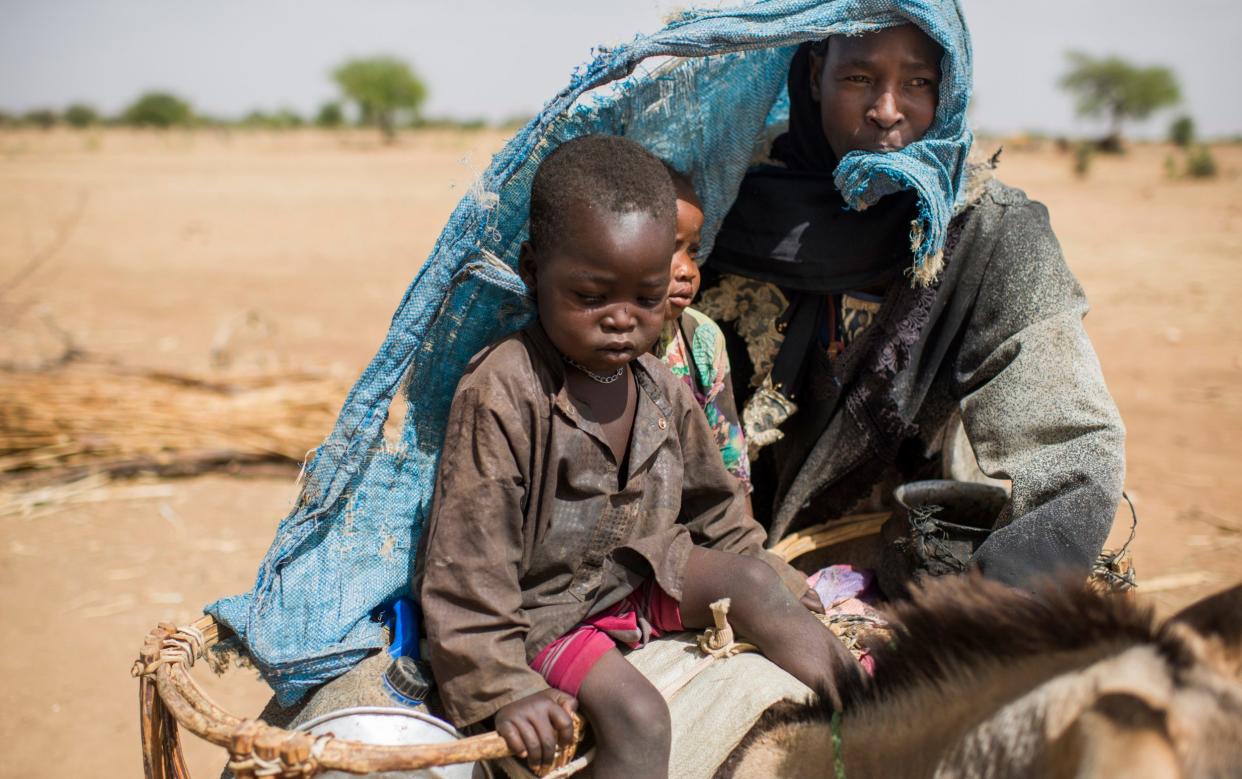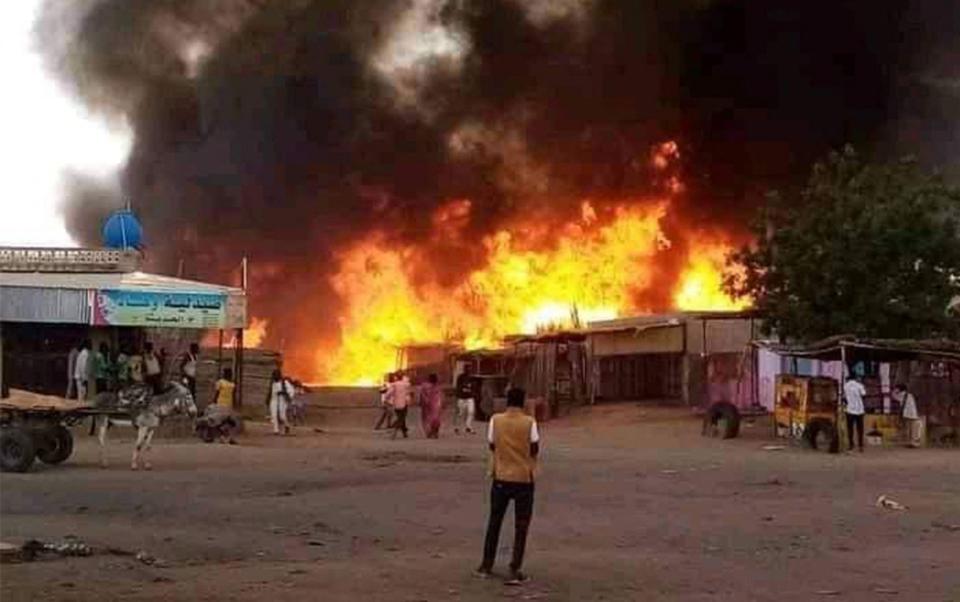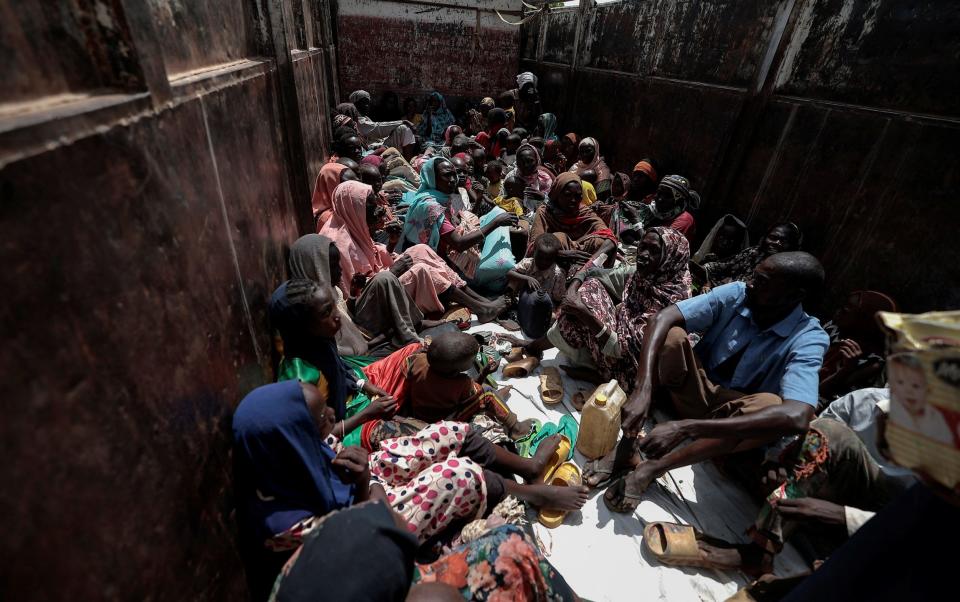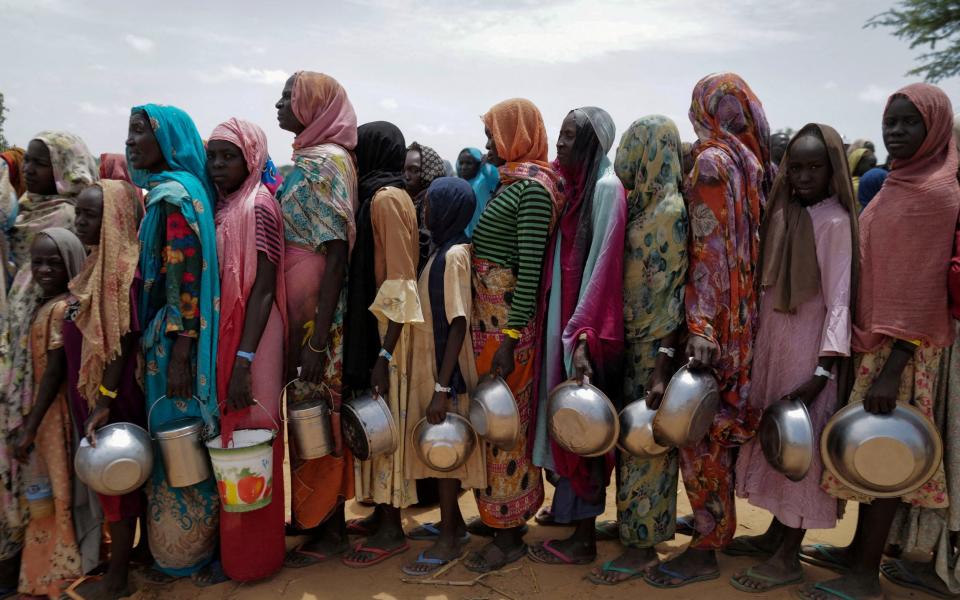Horrors of forgotten Sudan war ‘verging on pure evil’

In the seven months since Sudan was engulfed in war, Dr Mihad Yosif has faced shelling, hunger, predatory marauding troops and the disappearance of his brother.
For weeks at a time he has been afraid to leave his home and venture onto the streets, while his neighbourhood is still an occasional battlefield.
Hospitals have closed, water supplies stopped and the banks do not work. Inflation is in triple figures.
“The reality of the humanitarian situation is very dire,” Dr Yosif told the Telegraph by telephone from his home in Omdurman, across the River Nile from the capital Khartoum.
The war which first erupted in Sudan in mid-April between the Sudanese army and a paramilitary group called the Rapid Support Forces (RSF) may have since slipped from the world’s attention, but out of sight it shows no sign of ending.
Indeed many of the scenarios painted for how the conflict may develop show it only getting worse.

More than 10,400 people have been killed so far, according to one conservative estimate by the Armed Conflict Location and Event Data project. With hospitals largely not working and many dead being buried uncounted at home, the true toll is thought to be significantly, if not several times higher.
The United Nations estimates Sudan now has more displaced people than any other global crisis. Some six million people have fled their homes, many to neighbouring Chad and Central African Republic, while roughly half the nearly 50 million population are thought to need food aid.
Charities on the ground have warned that the atrocities committed particularly in West Darfur are a grim echo of the massacres seen during the region’s genocide 20 years ago.
A crisis with few equals
Clementine Nkweta-Salami, the United Nations humanitarian coordinator for Sudan, said last week: “What is happening is verging on pure evil.”
She warned “the situation is horrific and grim” and “frankly, we are running out of words to describe the horror of what is happening.” She stressed that “the Sudan crisis has few equals.”
The war broke out when a long-simmering rivalry between the de-facto president, Gen Abdel Fattah al-Burhan, and his deputy, Gen Mohamed Hamdan Dagaloa, known as Hemedti, boiled over. Hemedti controls the RSF.
It has had horrendous humanitarian consequences, but also threatens terrible geopolitical repercussions, observers fear.
Cameron Hudson, of the Centre for Strategic and International Studies think tank, said earlier this week that the prospects of a clean end to the conflict “appear non-existent”.
While the RSF has won some recent victories, seizing cities in Darfur, he said neither side “has demonstrated the ability to deliver a knockout blow and, in the process, continues to deliver devastating consequences to civilians”.
The resulting division of the country into fiefdoms belonging to the warring sides has led some to foresee a collapse similar to the chaos reported in Sudan’s northern neighbour, Libya.


Yet Mr Hudson warned Sudan’s size would make such a collapse even worse.
He said: “At nearly 10 times the size of its neighbour to the north, Sudan’s collapse would be cataclysmic, well beyond the extent of Libya’s collapse.
“One can imagine a scenario where tens of millions of Sudanese flee across the continent and the Red Sea to escape the country’s descent into warlordism and ethnic militia violence.”
In such a scenario, Islamist extremist groups and Russian mercenaries could be drawn into the vacuum of Sudan’s chaotic landscape.
“While ongoing conflicts in Gaza and Ukraine have captured the attention of the world, the geopolitical ripple effects of Sudan’s collapse are being woefully underestimated,” said Mr Hudson.
Fighting remains intense in Khartoum, West Darfur and parts of Kordofan.
In the capital, which was once home to well over six million people, around two-thirds of the population have fled.
Eatizaz Yousif, Sudan director for the International Rescue Committee, said: “Khartoum now is just like a ghost city. It’s being haunted by the smell of bodies in the street. Hospitals, homes, markets: all of them being bombed or looted.”
Food is scarce and when people brave the crossfire to venture out to forage, they must contend with the predations of the warring parties.
Dr Yosif, who works for a local cultural NGO, said: “If you get a chance to get out to find food it will be taken by the army or RSF this is the problem we faced.”
Fighters from each side also expect to be fed by the local population when they set up checkpoints. Young men are taken and pressed into fighting for one side or another.
He said: “It led to the loss of most of the young men. To this day, we do not know their whereabouts. This is a real problem. I have a brother who has been missing for two months.”
In Darfur, which was riven by a genocidal conflict 20 years ago, the current fighting has turbocharged renewed ethnic conflict.

The RSF and their allied Arab militias have been accused of targeting non-Arabs such as the African Masalit ethnic group.
In one of the most recent attacks, earlier this month some 800 were reported killed when the RSF and militia rampaged through Ardamata, attacking Masalit refugees after capturing its military garrison.
The United Nations rights office said survivors and witnesses described “suffered six days of terror” for Masalit civilians, with some victims burnt alive.
Laetitia Bader, Horn of Africa director for Human Rights Watch, said: “There was a rampage, killings, especially of men, but also women. Children were also killed. Each time there is massive pillaging, looting of property and this forces people to flee again.”
Attempts at peace talks in Jeddah have made little progress and several truces have quickly been breached. Diplomats have complained that neither side appears to be genuine about wanting a halt to fighting. Aid agencies say they are being blocked from swathes of the country.
Claire Nicolet, deputy head of the emergency cell at the medical aid agency Doctors Without Borders, said: “For sure there should be much more attention regarding the level of the crisis in Sudan.
“The needs are huge and very, very little is covered at the moment. It is a bit of a silent crisis at the moment.”
Protect yourself and your family by learning more about Global Health Security

